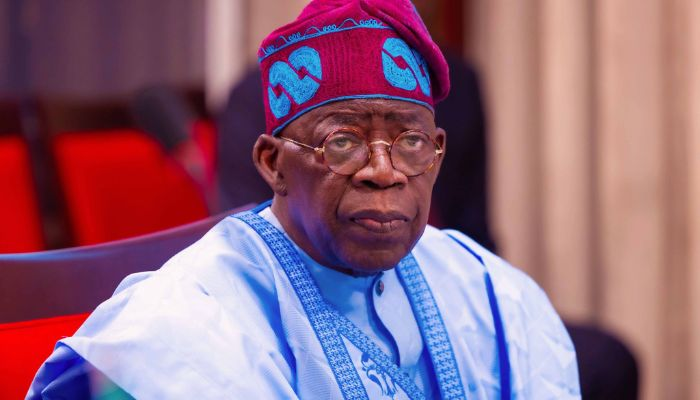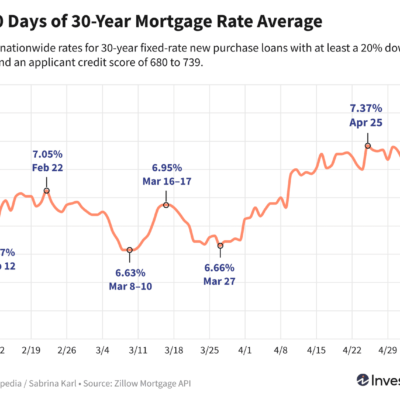Though it is not celebration time, the Federal Mortgage Bank of Nigeria (FMBN) has left some footprints in housing delivery and homeownership financing in the last two years under President Bola Tinubu. The apex mortgage bank has also leveraged technology a great deal, digitising its processes and easing access to loans, especially for affordable housing construction, rent, and renovation, writes CHUKA UROKO, Property Editor.
“Within the two years of President Tinubu’s presidency, FMBN, under Osidi’s leadership, has rolled out a blend of innovative and impactful initiatives, lifting thousands of Nigerians out of despair and into decent homes, improving living conditions and energising the broader real estate economy.”
The absence of a functional mortgage system offering affordable housing finance has been the singular reason many Nigerians are either homeless or living in substandard, overcrowded, and insecure housing or informal settlements.
For years, the country has grappled with a widening housing deficit estimated at 20-28 million units. This shortage has remained a damning national challenge, defying efforts of successive administrations.
Experts attribute the housing situation in the country to a combination of factors, including weak mortgage systems, limited access to credit, ineffective housing policies, and an urbanisation rate that continues to outpace housing supply.
When President Bola Tinubu assumed office two years ago, he inherited this unenviable housing legacy. But rather than viewing the housing crisis as intractable, he saw it as a challenge to be decisively addressed and an opportunity to deliver impactful reforms that would uplift lives and drive economic transformation.
President Tinubu recognised that access to decent housing is not just a matter of shelter but also a cornerstone of national development. It promotes social stability, improves health outcomes, reduces poverty, and drives inclusive economic growth.
One of his earliest and most strategic decisions was appointing Ahmed Dangiwa, a proven technocrat with deep sectoral experience, as the Minister of Housing and Urban Development. This signalled the president’s determination to bring competence and innovation to bear on the housing sector.
He followed this by launching the Renewed Hope Cities and Estates Programme, laying the foundation for a 3,112-unit estate in Karsana, Abuja, where the president made a clear and powerful declaration: “Every Nigerian deserves access to decent and affordable housing.”
True to his words, a repositioning of the housing agencies became a serious agenda, especially one as critical to access to affordable housing as the Federal Mortgage Bank of Nigeria (FMBN). Within the first year of his administration, he appointed a new executive management team, led by Shehu U. Osidi as Managing Director/Chief Executive, to drive institutional reforms and unlock the bank’s full potential.
As a further reflection of his commitment to housing sector progress and the critical role of FMBN, one year later, Tinubu complemented this with the appointment of a new Board of Directors chaired by Nasiru Yusuf Gawuna, adding strategic oversight to the Bank’s operations.
Within the two years of President Tinubu’s presidency, FMBN, under Osidi’s leadership, has rolled out a blend of innovative and impactful initiatives, lifting thousands of Nigerians out of despair and into decent homes, improving living conditions and energising the broader real estate economy.
From record-breaking disbursements to digital solutions, FMBN’s achievements reflect a renewed commitment to bridging Nigeria’s housing deficit and empowering citizens in line with Tinubu’s Renewed Hope Agenda. Over the last two years, the apex mortgage bank has left a good number of footprints in both housing financing and delivery.
One of the Bank’s standout achievements during these two years has been expanded mortgage access and increased homeownership, which underscores the scale of mortgage disbursements under the National Housing Fund (NHF) Scheme.
Between May 2023 and early 2025, the bank disbursed over ₦11.75 billion in NHF mortgage loans to 1,285 beneficiaries. These funds provided access to affordable, long-tenure loans at single-digit interest rates, reducing the financial barriers that historically hindered many Nigerians from owning homes.
Also recognising that upfront rent costs often pose barriers for many families, FMBN has scaled up its Rent-to-Own programme. With ₦15.06 billion disbursed in the past two years, 1,140 Nigerians now live in homes they are gradually paying for through rent, with the assurance of eventual ownership. This flexible model is delivering both shelter and long-term security.
Beyond facilitating new ownership, FMBN has supported existing homeowners through its Home Renovation Loan initiative. Over 27,900 Nigerians have accessed ₦15.35 billion to carry out essential home upgrades. This has improved living standards and preserved property values while stimulating the growth of local construction and building materials sectors.
To further reduce the housing deficit, FMBN has financed the construction of 2,542 new housing units valued at ₦30.91 billion. These projects are spread across Nigeria’s geopolitical zones and tailored to low- and middle-income earners, supporting inclusive urban growth while also generating thousands of jobs in allied industries.
Support for the Renewed Hope Cities and Estates programme has been the bank’s major contribution to President Tinubu’s Renewed Hope Agenda and its support for the Renewed Hope Cities and Estates programme. The bank committed a ₦100 billion off-taker guarantee to private developers handling the project, providing the assurance needed to access loans and begin construction.
Additionally, FMBN is directly financing federal housing projects in Ibeju-Lekki, Lagos, and Karsana, Abuja, with ₦27 billion and ₦19.9 billion, respectively. These cities are envisioned as modern, sustainable communities with critical infrastructure, green spaces and integrated transportation, which are hallmarks of the Tinubu administration’s urban vision.
The bank’s digital transformation, leading to exceptional service delivery, is remarkable. In a country where public institutions are often hampered by slow service delivery and manual processes, FMBN has charted a different path. The full deployment of the FMBN Core Banking Application (CBA), which has been in the works for years, marked a landmark achievement. With this system, contributors can register, remit NHF payments, apply for loans, check balances and request refunds online, eliminating bottlenecks and long queues. Service turnaround times have been reduced by over 40 per cent as a result of this initiative.
This digital shift is especially empowering Nigeria’s tech-savvy youths, small business owners and remote workers who demand convenience and speed. The CBA aligns with President Tinubu’s broader digital public sector vision and positions FMBN as a modern institution capable of scale and inclusion. It has eliminated the challenge of financial alienation which previously besieged underserved populations.
Read also: What numbers say about mortgage sector under Tinubu
As a result of these improvements, FMBN was ranked among the top 10 Ministries, Departments, and Agencies (MDAs) in customer service and among the top three in its sector in the 2024 SERVICOM Scorecard. The bank also received “The Best Housing Finance Solution Award 2024” from the Africa Housing Awards and earned a 72.5 percent compliance score from the Independent Corrupt Practices Commission (ICPC).
FMBN, within this period, embarked on the development of new products for diaspora and informal sector inclusion. It has broadened its product portfolio to reflect Nigeria’s diverse workforce. New offerings include a Rent Assistance Loan and a Home Improvement Loan, both designed for the informal sector. These products target self-employed individuals and daily earners who typically lack traditional documentation but represent a large portion of the population.
The bank is also introducing a non-interest NHF mortgage loan, providing an option for Nigerians who prefer alternative financial models. These initiatives reflect FMBN’s responsiveness to evolving customer needs.
Another landmark initiative is the soon-to-be-launched Diaspora Mortgage Product, developed in collaboration with the Nigerians in Diaspora Commission (NiDCOM). This will allow Nigerians abroad to contribute to the NHF Scheme and access mortgage financing for homes in Nigeria. It will also strengthen diaspora ties and offer a safe, structured real estate investment avenue.
With remittances from Nigerians abroad exceeding $20 billion annually, this product is expected to unlock new inflows into the housing sector and position FMBN as a strategic player in diaspora engagement.
Numbers, it is said, don’t lie, and those available show a strong financial performance and institutional growth recorded by the bank. It has demonstrated financial discipline and growth. Under its current leadership, as of December 31, 2024, the bank recorded its first-ever financial surplus of ₦11.58 billion in over 30 years of existence (unaudited). This reflects enhanced efficiency, prudent risk management, and strong financial stewardship.
As a mark of a commitment to sustain and improve these efforts, FMBN has already recorded a financial surplus of N6.5 billion this year, less than six months into the year. This financial turnaround is not just a technical accomplishment; it also represents a broader institutional transformation that enhances FMBN’s capacity to drive systemic change in the housing ecosystem. This is a significant boost to the Tinubu administration.
FMBN has established a National Mortgage Registry (NMR) in its bid to modernise the mortgage sector and ensure greater transparency. Aligned with President Tinubu’s priorities and the ministerial goals set by Minister Dangiwa, the NMR is currently in the development and testing phase.
Once launched, the centralised digital database will record mortgage transactions in real-time, enabling financial institutions, government agencies and homebuyers to verify property titles, track loan status and prevent fraud. It will streamline processes, reduce risks and expand access to mortgage finance, especially for informal sector participants who were historically excluded from the system.
There are additional strategic initiatives the bank has undertaken in order to deepen its impact. It is also pursuing a ₦500 billion recapitalisation to expand its capacity for affordable housing delivery. The initiative involves a federal government equity injection and the raising of debt from domestic and international sources. Simultaneously, the Bank is working to amend the FMBN and NHF Acts to modernise its legal framework. These reforms are aimed at strengthening institutional effectiveness, enhancing access to finance and ensuring long-term sustainability of the housing sector.
It is heartwarming to note that, in two years, FMBN has translated President Tinubu’s bold vision into reality for thousands of Nigerian families. Whether it is the market trader in Kano receiving a rent assistance loan, a civil servant in Akwa Ibom renovating her home, or a young couple in the diaspora securing a mortgage for their first property back home, the impact of FMBN’s transformation is real, wide-reaching, and deeply human.
Through innovation, inclusivity, and sound leadership, FMBN is not only building homes but also renewing and building hope and a sustainable future for millions of Nigerians.






